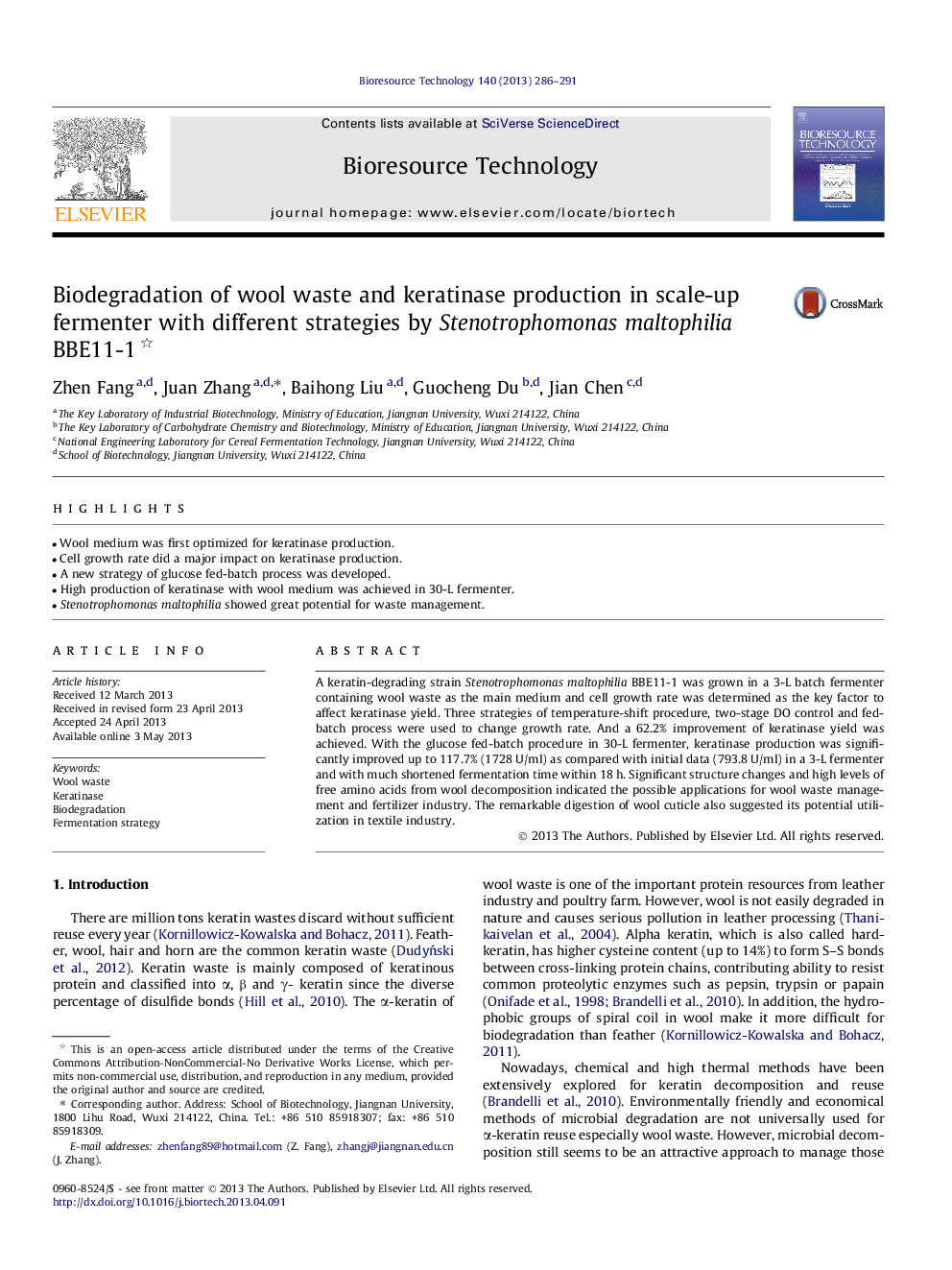| Article ID | Journal | Published Year | Pages | File Type |
|---|---|---|---|---|
| 7082164 | Bioresource Technology | 2013 | 6 Pages |
Abstract
A keratin-degrading strain Stenotrophomonas maltophilia BBE11-1 was grown in a 3-L batch fermenter containing wool waste as the main medium and cell growth rate was determined as the key factor to affect keratinase yield. Three strategies of temperature-shift procedure, two-stage DO control and fed-batch process were used to change growth rate. And a 62.2% improvement of keratinase yield was achieved. With the glucose fed-batch procedure in 30-L fermenter, keratinase production was significantly improved up to 117.7% (1728Â U/ml) as compared with initial data (793.8Â U/ml) in a 3-L fermenter and with much shortened fermentation time within 18Â h. Significant structure changes and high levels of free amino acids from wool decomposition indicated the possible applications for wool waste management and fertilizer industry. The remarkable digestion of wool cuticle also suggested its potential utilization in textile industry.
Keywords
Related Topics
Physical Sciences and Engineering
Chemical Engineering
Process Chemistry and Technology
Authors
Zhen Fang, Juan Zhang, Baihong Liu, Guocheng Du, Jian Chen,
